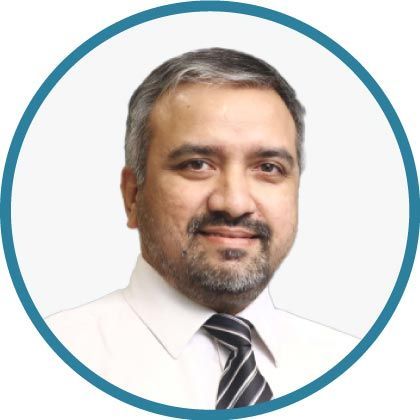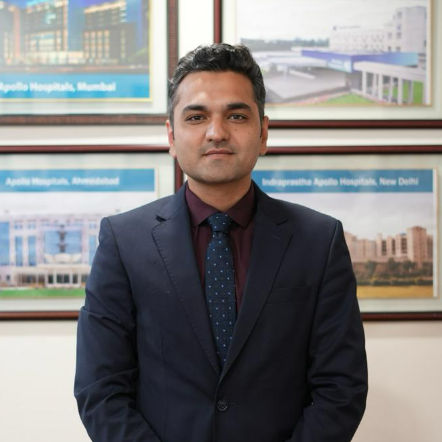Spinal Cord Injury Overview and Management
Explore spinal cord injury, its types, causes, symptoms, and impact on mobility and overall health. Learn about available management strategies, treatment options, and rehabilitation approaches to improve quality of life.

Written by Dr. Vasanthasree Nair
Reviewed by Dr. Rohinipriyanka Pondugula MBBS
Last updated on 27th Aug, 2025

A spinal cord injury (SCI) is a serious medical condition that can significantly impact a person’s life. Whether caused by an accident, fall, or disease, it affects movement, sensation, and bodily functions. Understanding SCI, its symptoms, causes, and management can help patients and caregivers navigate recovery with confidence.
What is a Spinal Cord Injury?
The spinal cord is a bundle of nerves that carries messages between the brain and the rest of the body. When it gets damaged due to trauma or disease, these messages are disrupted, leading to loss of movement (paralysis), sensation, or control over bodily functions like bladder and bowel movements.
Consult a Neurosurgeon for the best advice
Types of Spinal Cord Injuries
Spinal cord injuries can vary in severity and impact:
1. Complete SCI – Total loss of movement and sensation below the injury level.
2. Incomplete SCI – Partial damage, allowing some movement or sensation below the injury.
The severity depends on the location and extent of the injury.
Common Causes of Spinal Cord Injury
SCI can result from:
- Trauma – Car accidents, falls, sports injuries, or violence.
- Diseases – Tumors, infections, or conditions like spinal stenosis.
- Degenerative Disorders – Arthritis or disc problems that compress the spinal cord.
Symptoms of Spinal Cord Injury
Symptoms vary based on the injury’s severity and location:
- Loss of movement (paralysis) in arms, legs, or both.
- Loss of sensation (unable to feel touch, heat, or cold).
- Difficulty breathing (if the injury is high in the neck).
- Loss of bladder or bowel control.
- Chronic pain or muscle spasms.
- Sexual dysfunction.
If you or someone experiences sudden weakness, numbness, or paralysis after an injury, seek emergency medical help immediately.
How SCI Affects Daily Life
Living with SCI requires adjustments, as it can impact:
- Mobility – Wheelchairs or assistive devices may be needed.
- Bladder & Bowel Control – Catheters or special diets may help.
- Skin Care – Reduced sensation increases the risk of pressure sores.
- Mental Health – Depression or anxiety may occur; counselling helps.
Managing Spinal Cord Injury
While some SCIs are permanent, proper care and rehabilitation can improve quality of life.
Medical Treatments
- Emergency Care – Immediate stabilization to prevent further damage.
- Surgery – To remove bone fragments or relieve pressure on the spine.
- Medications – To manage pain, muscle spasms, or infections.
Rehabilitation & Therapy
- Physical Therapy – Strengthens muscles and improves mobility.
- Occupational Therapy – Helps relearn daily tasks like dressing and eating.
- Psychological Support – Counselling helps cope with emotional challenges.
Lifestyle & Home Care Tips
Simple lifestyle changes and proper home care can make daily living easier and support recovery.
1. Prevent Pressure Sores – Change positions frequently, use special cushions.
2. Exercise Regularly – Strengthens muscles and improves circulation.
3. Healthy Diet – High-fibre foods prevent constipation; hydration is key.
4. Assistive Devices – Wheelchairs, braces, or voice-controlled tech can help.
5. Support Groups – Connecting with others facing SCI can be encouraging.
When to See a Doctor?
If you experience:
- Sudden weakness or numbness after an injury.
- Difficulty breathing or controlling bladder/bowel.
- Severe back pain or pressure in the neck/head.
Early medical intervention can prevent complications.
Final Thoughts
A spinal cord injury is life-changing, but with the right care, support, and determination, many people lead fulfilling lives. Early treatment, rehabilitation, and a positive mindset make a big difference.
Consult a Neurosurgeon for the best advice
Consult a Neurosurgeon for the best advice

Dr. Gopal Achari
Neurosurgeon
20 Years • MBBS, MS (GEN SUR), MCH (NEURO SUR)
Kolkata
Apollo Multispeciality Hospitals , Kolkata, Kolkata

Dr. Aditendraditya Singh Bhati
Neurosurgeon
18 Years • MBBS(2004), DNB Neurosurgery(2014); MNAMS; Fellow Neuroendoscopy
Delhi
Apollo Hospitals Indraprastha, Delhi
(100+ Patients)

Dr. Sarthak Mehta
Neurologist
6 Years • MBBS , MS Mch ( Neuro )
Bengaluru
Apollo Clinic, JP nagar, Bengaluru

Dr. Joy Verghese
Neurosurgeon
21 Years • MBBS, MS, MCH (Neuro surg. ), FMVS, FSS, FINR, MCH Neurosurgery (Mumbai University), FINR (Zurich University, Switzerland)
Chennai
Apollo Hospitals Greams Road, Chennai
(125+ Patients)

Dr Gaurav Tyagi
Neurosurgeon
8 Years • MBBS, MS, MCh (NIMHANS) Clinical Fellowship in Skull base Surgery
Delhi
Apollo Hospitals Indraprastha, Delhi
(25+ Patients)
Consult a Neurosurgeon for the best advice

Dr. Gopal Achari
Neurosurgeon
20 Years • MBBS, MS (GEN SUR), MCH (NEURO SUR)
Kolkata
Apollo Multispeciality Hospitals , Kolkata, Kolkata

Dr. Aditendraditya Singh Bhati
Neurosurgeon
18 Years • MBBS(2004), DNB Neurosurgery(2014); MNAMS; Fellow Neuroendoscopy
Delhi
Apollo Hospitals Indraprastha, Delhi
(100+ Patients)

Dr. Sarthak Mehta
Neurologist
6 Years • MBBS , MS Mch ( Neuro )
Bengaluru
Apollo Clinic, JP nagar, Bengaluru

Dr. Joy Verghese
Neurosurgeon
21 Years • MBBS, MS, MCH (Neuro surg. ), FMVS, FSS, FINR, MCH Neurosurgery (Mumbai University), FINR (Zurich University, Switzerland)
Chennai
Apollo Hospitals Greams Road, Chennai
(125+ Patients)

Dr Gaurav Tyagi
Neurosurgeon
8 Years • MBBS, MS, MCh (NIMHANS) Clinical Fellowship in Skull base Surgery
Delhi
Apollo Hospitals Indraprastha, Delhi
(25+ Patients)